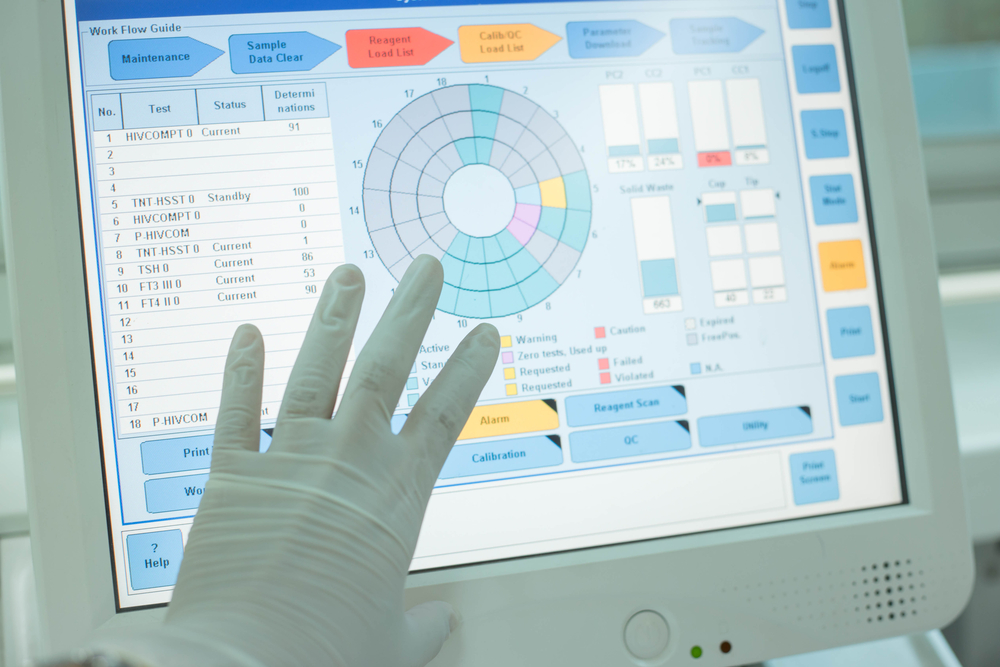
Analysing EQA Reports for Continuous Improvement
Written by: UK NEQAS IIA, published on: 3 Feb 2025

External Quality Assessment (EQA) plays a crucial role in ensuring laboratories worldwide deliver accurate and reliable results. In this blog, we explore how to effectively analyse EQA reports, uncover key insights, and use them as a powerful tool for driving continuous improvement in laboratory performance.
What is an EQA Report?
Reports are an important way to give feedback in EQA. Their main job is to grade how well laboratories perform during an EQA round. Participating laboratories should receive a confidential individual report as soon as possible after an EQA round has closed.
Why EQA Reports Matter for Continuous Improvement
EQA reports provide an objective assessment of how well a lab is performing when compared to standardised benchmarks as well as other laboratories. Through analysing EQA reports, laboratories can also pinpoint errors or inconsistencies in processes, such as issues with equipment calibration or operator techniques.
EQA participation is often a requirement for accreditation by regulatory bodies, so EQA reports demonstrate a lab's commitment to maintaining high standards and adhering to international quality guidelines.
Key Components of an EQA Report
Understanding Scoring Metrics
To calculate these, EQA providers need two things: a target value and a standard deviation for the sample.
The Role of Assigned Values and Standard Deviations
Assigned values are the expected results, while standard deviations are how much results can vary. These can be determined using statistical analysis.
When derived statistically, unusual results (outliers) that don’t fit the normal pattern of the data need to be dealt with carefully. Different methods and tools can help handle these issues.
In order to calculate accurate performance scores, you need enough data from the labs. However, there is no universal rule for how much will be enough. If there’s very little data, adjustments can be made by changing how results are evaluated.
In addition to looking at results for individual tests, you can combine results from different tests (for example, across multiple analytes or samples). This combined analysis can give extra insights, not just for tests that measure exact quantities, but also for those that are more qualitative or semi-quantitative.
Steps to Analyse an EQA Report Effectively
Reviewing Performance Scores
- Understand what the scores represent
- Check whether your scores fall within the acceptable limits defined by the EQA provider
Identifying Trends over Time
- Use graphs or tables provided to visualise scores over time
- Identify recurring problems and consider whether these are due to internal processes, training gaps or something else
- Analyse whether changes that were implemented after any previous reports have led to improvement
Comparing Performance Against Peers
- Understand the benchmarking process - EQA reports often rank labs based on performance or provide averages for peer groups
- Celebrate areas where your lab outperforms peers to motivate the team
Using EQA Data for Continuous Improvement
The data from your EQA report serves as a valuable tool for driving continuous improvement in your laboratory. It enables you to set clear, measurable goals for enhancing performance and address any errors or inconsistencies that may have been highlighted.
Additionally, the insights gained from the report can guide targeted training programs to strengthen your team’s skills, improve procedural accuracy, and minimise future errors. By leveraging the feedback effectively, you can encourage a culture of quality and ensure the reliability of your laboratory’s results for the benefit of patients.
EQA at UK NEQAS IIA
At UK NEQAS, we offer a trusted and independent EQA service for clinical laboratories worldwide. Our mission is to support laboratories in maintaining and enhancing their skills, ensuring the accuracy and reliability of their diagnostic processes.
By participating in our EQA programs, laboratories gain valuable insights into their performance, identify areas for improvement, and adopt best practices in laboratory medicine. Our tailored assessments and detailed feedback not only help enhance technical competencies but also foster a culture of continuous learning and quality improvement. For more information, don’t hesitate to contact us. To learn more, you can also browse our range of educational resources within our Digital Academy.

